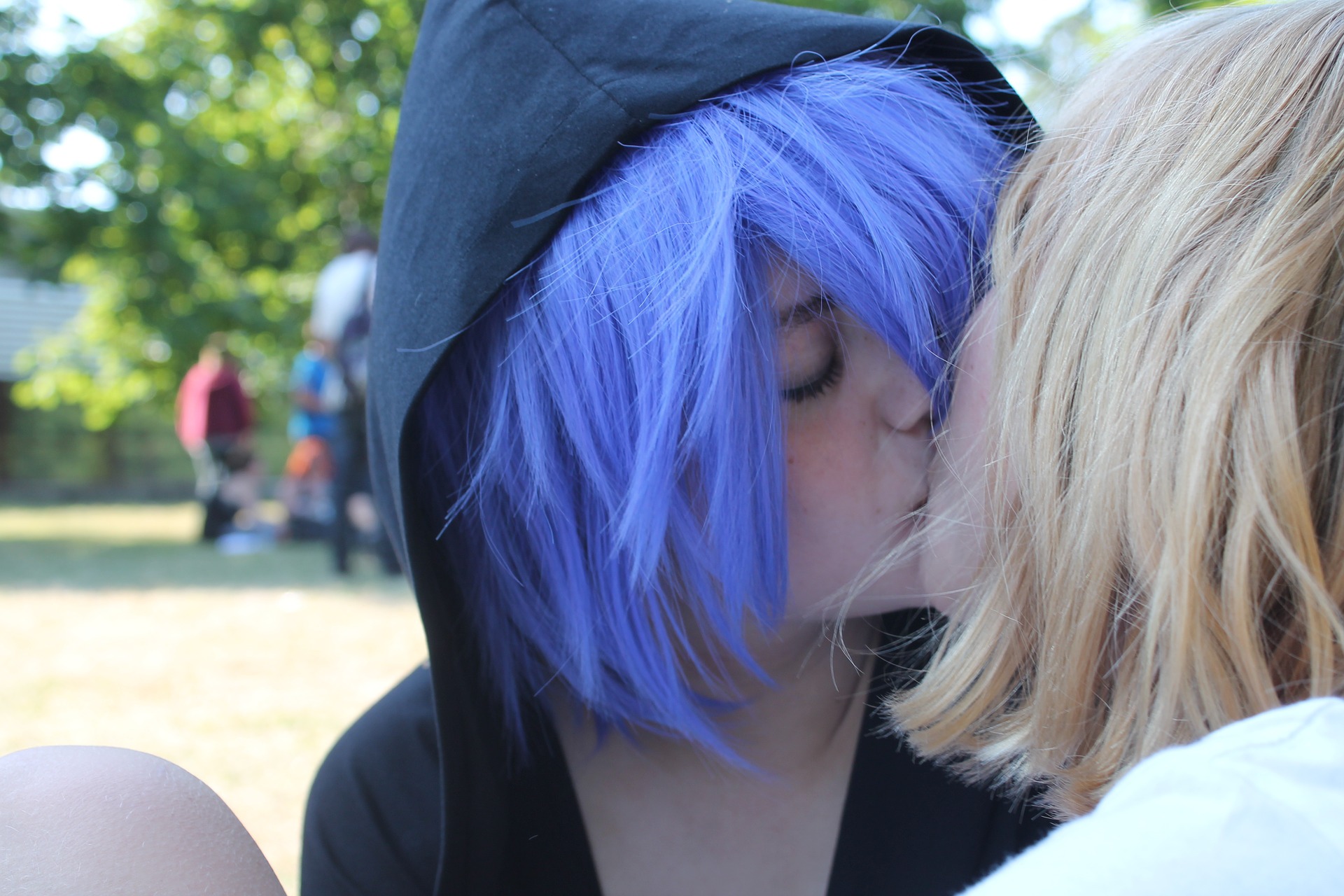The first time my girlfriend kissed me in public, I went home and cried. I cried because she had never dated a girl before, had never kissed a girl in public before, and it hadn’t even occurred to her to be afraid of doing so. And I didn’t want to be afraid either, but I also knew that it would only take one time to tear down her naivety that I so desperately wanted to protect.
More than 2/3 of LGBT people in the UK fear
The
If you question this, ask the queer women in your life how often they have been asked and expected to perform their sexuality for men. Yet many refuse to see how damaging this can be, see it only as harmless fun. They don’t see that queer women are only seen as valid through the eyes of men. I have had a man jeer at me, a doctor no less, to kiss women in front of him, only for him to turn around and tell me that my sexuality was not real, my sex life inferior, my feelings invalid.
But these aren’t just anecdotes, they have
The experiences of these two women have shed a global spotlight on the violence still faced by queer women in 21stcentury Britain, but our problems don’t stop there. Lesbophobia continues to be normalised within our culture and that does not exclude the liberal bubble that university students like to see themselves as existing within. I could not count the times that I have been told by men that they could ‘turn me straight,’ overlooking the ways in which lesbians make up the majority of victims of corrective rape, and having experienced this personally, this kind of language has a profound effect on both individuals and cultural norms.
I have sat in numerous rooms as people belittle the act of asking for people’s pronouns, and felt as a non-binary lesbian, that in places I most expected to feel safe, I would never be free to be who I was. Not every act of lesbophobia will be as blatant as that experienced by Chris and
Stand up against the men in your life who objectify and belittle the experiences of queer women. Stand against everything from harmless jokes to threats of violence, because pride still needs to exist as

